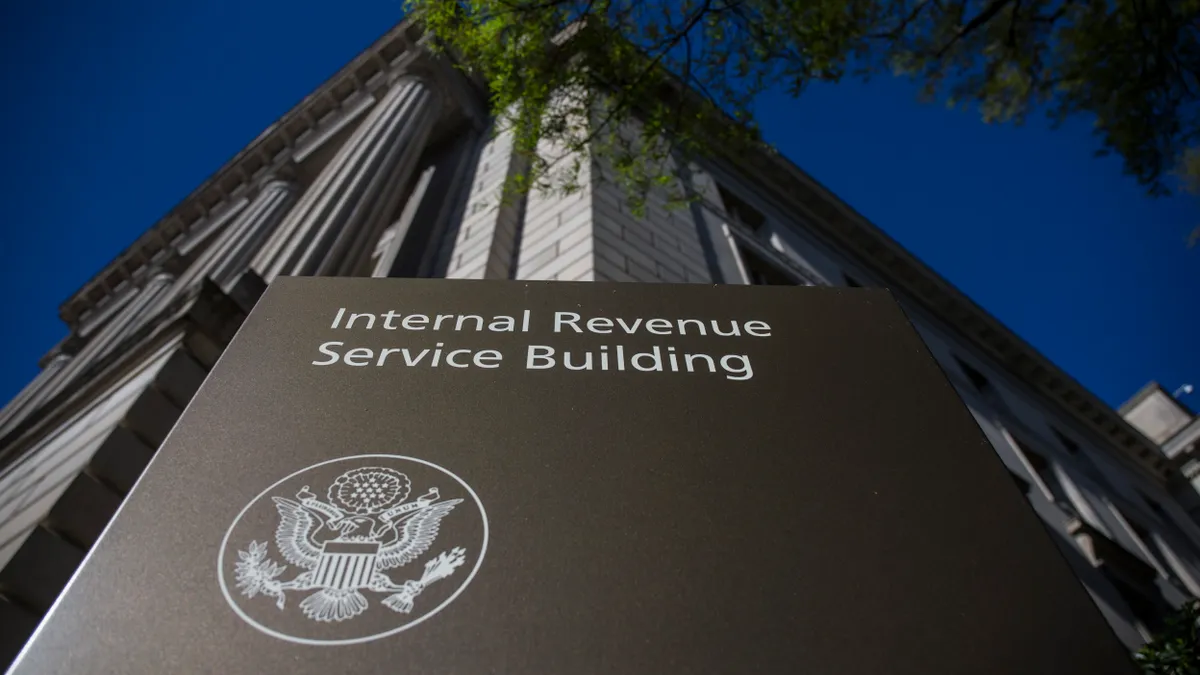Dive Brief:
- IRS Commissioner Charles Rettig in testimony to a Senate committee Thursday said steady, multi-year funding is essential to agency efforts to upgrade technology, hire sufficient staff and clear a backlog of more than 20 million unprocessed tax returns.
- “This agency like every other federal agency has been in more than 100 continuing [budget] resolutions since calendar year 2001,” Rettig told the Senate Finance Committee, noting that the IRS received approval for its current budget as late as March 15.
- “It is impossible to build a robust, meaningful technology infrastructure for any agency, for any private sector organization, when we don’t have consistent, timely, multi-year funding,” Rettig said.
Dive Insight:
The IRS for decades has operated on tight budgets that have hampered efforts at enforcement, processing tax returns and replace technology that dates to the 1960s.
Since 2010 the agency’s workforce has shrunk 17% even as its workload – based on the number of filings – has increased 19%, National Taxpayer Advocate Erin Collins told a House Ways and Means subcommittee in February.
With insufficient resources, IRS employees in 2019 answered only 29% of taxpayer phone calls, Collins said. “IT systems are antiquated and are largely held together by belt and suspenders, currently unable to offer taxpayers seemingly basic features like effective online accounts.”
IRS challenges increased during the pandemic as the agency took the lead in distributing federal aid through tax credits and checks.
The Biden administration last month proposed raising the IRS budget by 18.3% to $14.1 billion for fiscal year 2023. A portion of the new funding will go toward improving oversight of corporate tax returns and those filed by high income taxpayers.
The administration has proposed $463.3 million in IRS enforcement spending to help increase the audit rate, which since 2010 has declined by half for returns filed by large corporations, pass-through entities and high-wealth individuals, the IRS said.
Sub-par IRS performance has provoked partisan rancor that flared during the Thursday hearing.
“If you’re frustrated by poor customer service from the IRS, you have years and years of Republican cuts that have contributed mightily to the ability of the agency to meet your expectations,” Sen. Ron Wyden (D-Ore.) said during the hearing.
“For all the talk about running government more like a business, an awful lot of Republicans want to turn the government into the kind of dysfunctional business that never gets a repeat customer,” he said.
Republicans sought to fend off the criticism. “There’s a need to change course [at the IRS], but I don’t believe the administration’s outsized partisan approach is the solution,” Sen. Mike Crapo (R-Idaho).
“This is not a funding issue,” Crapo said. “Solutions to these challenges have existed for years, but today have not been implemented.”












